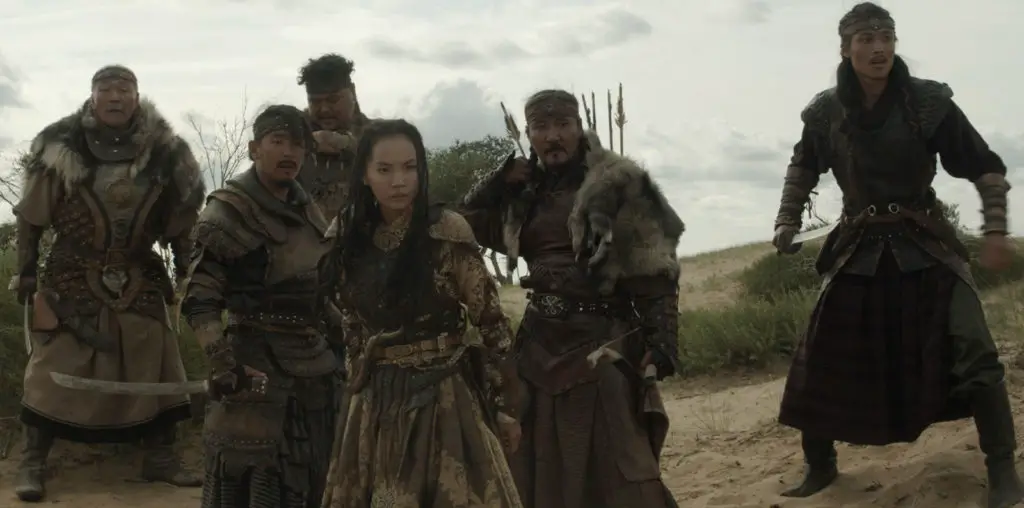
“Australia,” Baz Luhrmann’s grand-scale return after a seven-year hiatus, was met with anticipation of, alas, a sour kind. As Luhrmann and company edited weeks before the release, word had it that the filmmaker ditched his original downbeat ending for a happier final note. Studio pressures reeked beneath the decision, though 20th Century Fox asserts that the call was all Luhrmann’s, since he has final cut. Publicity also didn’t hide the fact that Russell Crowe, the big screen’s leading man from Down Under, was Luhrmann’s first choice for the male lead, before settling for the reliable but more generic Aussie, Hugh Jackman.
The actor’s paired with Nicole Kidman, a more unique presence next to her co-star, a “type” who’s interchangeable with the likes of Eric Bana and Gerard Butler. Kidman tightens her vowels and her outerwear as Lady Sarah Ashley, an English woman taking over a cattle range she has inherited from her dead husband. There she finds corruption in the form of a seamy cattle baron, King Carney (Bryan Brown), along with the realities of institutionalized racism against the Aborigines. When she dismisses Neil Fletcher (David Wenham), a cattle station manager working with Carney, and the epitome of sheer villainy – he abuses his illegitimate “half blood” child and the woman he impregnated – the “Drover” (Aussie for cowboy, played by Jackman) approaches her homestead like an act of providence. His entry is a stylistic flourish, the kind of whim Luhrmann has made his habit. Here it’s emblematic of a breezy style that makes for diverting and visually splendid fare.
Determined to overcome the corrupt, Lady Ashley persuades the Drover to help her deliver her sizable herd of cattle for overseas shipment. Her quest grounds the film as a genre piece in the classical mold, in which the wealth of the frontier is rightfully won by the virtuous over the mercenary parties. She amasses a pack of unlikely misfits, like those of the classic western that unite to claim the frontier, be they in a Fordian “Stagecoach” or one of Anthony Mann’s northwestern communities.
Throughout this classical narrative, Luhrmann and his co-writers extend the revisionary theme of racial hatred. The government intends to take ownership of the halfbreed child, Nullah (Brandon Walters) – to “breed the black out of him” – whom Lady Ashley has taken under her care. All the while his tribal grandfather, King George (David Gulpilil), watches over him from a distance, less like a guardian angel than the spirit of fate. After Lady Ashley and her team have their showdown with Carney comes the film’s other revisionist undertone, the looming shadow of the Second World War. The film’s historical attention, dealing with Australia’s dark racist past and a post-Pearl Harbor Japanese attack, appears to position Luhrmann’s film as a national epic. However, “Australia” remains a stylish entertainment that channels the scope of adventure with its suspense and, impressively enough, maintains a humorous undercurrent.
With measured visual flash, Luhrmann highlights the delightful presence of his two stars and realizes an unlikely feelgood film, in spite of its grave matters. If the filmmaker was advised to bring his downbeat ending up, in this case it was advice well taken.
